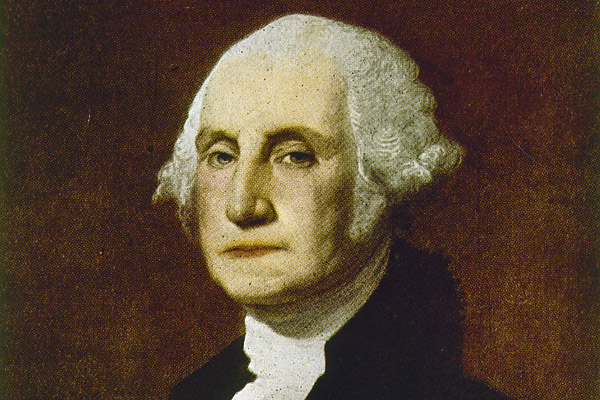
To set the record straight, today isn’t actually Presidents’ Day. It is still known as Washington’s Birthday, according to the federal government and section 6103(a) of title 5 of the U.S. Code.
Give George Washington the credit he’s due, since this whole holiday thing started in 1796 when people began celebrating him during his final year as President. But even then, his Feb. 22 birthday wasn’t a clear-cut date. At that time, there was still a bit of confusion over the change in calendar systems, especially considering Washington’s birthday dated back to 1732. For those still using the old-school Julian-style calendar, which was in use in England until 1752, Washington’s birthday was Feb. 11. The Gregorian calendar, which took over for the Julian style, however, had his birthday as Feb. 22. That led to some confusion in the 1700s.
But our forefathers worked through their differences and landed on honoring Washington annually on Feb. 22, often with galas in Washington, D.C., and the tried and true U.S. pastime of drinking. The tradition of celebrating Washington continued for the next 90 or so years, and Congress made the holiday a law, giving Washington the first federal holiday to honor a person when they made it official in 1880.
Things started to change, though, in 1968, when Congress introduced the Uniform Monday Holiday Bill in an effort to create as many long weekends as possible for U.S. workers. This law altered a handful of holidays to always fall on Monday, including moving Washington’s birthday to the third Monday in February, even though it would not fall on Washington’s actual birthday. This change upset die-hard George Washington supporters who felt the true nature of the holiday required celebration only on Feb. 22.
During the debate of the bill, Congress widely discussed the idea to rename the holiday Presidents’ Day and honor Abraham Lincoln’s Feb. 12 birthday as well. At that time, Lincoln’s birthday was a holiday in a handful of states but not recognized as a federal holiday. While the holiday was moved off Washington’s birthday, the name was never officially changed. When the new holiday rules took effect a few years later in 1971, the retail power of states such as Texas and California latched onto the Presidents’ Day name. Businesses around the country started using that moniker to promote February sales, starting as early as Lincoln’s birthday and again around Washington’s birthday. (But no love for short-lived President William Henry Harrison, who was also born in February.) Coupled with the fact that some states were still honoring Lincoln with his own holiday and the federal code permits states to use whatever name they want for a federal holiday, the merged Presidents’ Day name offered uniformity across the country.
The use of Presidents’ Day as the name continued to grow in popularity, gaining widespread acceptance by the 1980s. Then, in 1999, due to Presidents’ Day having taken over as the accepted name, a pair of bills tried to force the official use of Washington’s Birthday for the holiday (Ronald Reagan’s birthday on Feb. 6 has added a fourth presidential birthday to the month of February). But there wasn’t much support for that, in essence offering Presidents’ Day a chance to celebrate not only Washington and Lincoln, but also all other presidents. Even Harrison.
More Must-Reads from TIME
- Why Trump’s Message Worked on Latino Men
- What Trump’s Win Could Mean for Housing
- The 100 Must-Read Books of 2024
- Sleep Doctors Share the 1 Tip That’s Changed Their Lives
- Column: Let’s Bring Back Romance
- What It’s Like to Have Long COVID As a Kid
- FX’s Say Nothing Is the Must-Watch Political Thriller of 2024
- Merle Bombardieri Is Helping People Make the Baby Decision
Contact us at letters@time.com